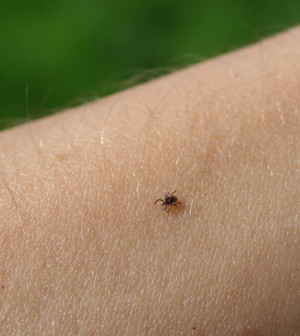- Could Your Grocery Store Meat Be Causing Recurring UTIs?
- Are You Making This Expensive Thermostat Error This Winter?
- Recognizing the Signs of Hypothyroidism
- 10 Strategies to Overcome Insomnia
- Could Artificial Sweeteners Be Aging the Brain Faster?
- Techniques for Soothing Your Nervous System
- Does the Water in Your House Smell Funny? Here’s Why
- Can a Daily Dose of Apple Cider Vinegar Actually Aid Weight Loss?
- 6 Health Beverages That Can Actually Spike Your Blood Sugar
- Treatment Options for Social Anxiety Disorder
Some Pregnant Women Still Travel to Zika-Affected Areas

Despite warnings, an increasing number of pregnant women from New York City are traveling to Zika-affected areas and then getting tested when they come home, the city’s health department says.
The Zika virus can cause miscarriage and serious birth defects, such as microcephaly, which leads to babies born with small heads and underdeveloped brains.
The Zika epidemic has been largely confined so far to Latin American and the Caribbean, with Brazil particularly hard hit.
As of July 15, doctors in New York City had requested tests for more than 2,000 pregnant women who had traveled to areas where there is active transmission of Zika. Forty-one of these women were found to have the virus.
Pregnant women are also being tested for possible exposure to the virus by male sex partners who have traveled to Zika-affected areas, city health officials said.
In response, the city’s health department has launched a campaign reminding women who are pregnant or trying to become pregnant and their partners to delay travel to Zika-affected areas. The campaign also reminds people to use condoms or other barrier protection when having sex with a person who has recently traveled to a Zika-affected area.
“We remain concerned about the growing number of pregnant New Yorkers who are still traveling to Zika-affected areas,” Deputy Mayor for Health and Human Services Dr. Herminia Palacio said in a health department news release. “We want to ensure that pregnant women have the information they need to protect their babies, and we strongly recommend that they follow the travel advice and delay travel to countries with Zika,” she said.
City Health Commissioner Dr. Mary Bassett said: “If you are pregnant or trying to get pregnant, you should postpone travel to places where there is Zika. Family and friends will understand.”
If a male partner travels to Zika-infected areas, he should follow the advice regarding safe sex, Bassett said.
“If he is uncertain that he can follow this advice, he should consider not traveling. The consequences of infection are far too high,” she added.
More information
For more on Zika virus, visit the U.S. Centers for Disease Control and Prevention.
Source: HealthDay
Copyright © 2026 HealthDay. All rights reserved.










